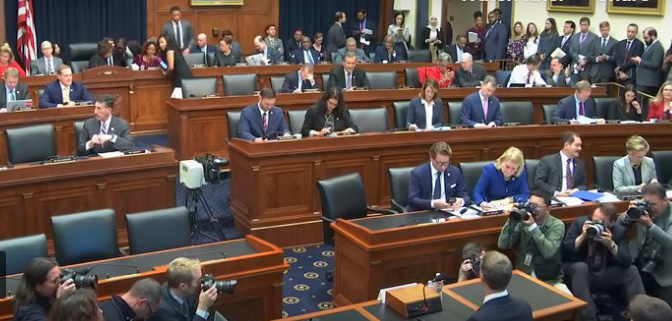
Congress Passes $900 Million Economic Stimulus Package

After marathon on-and-off negotiations, the House and Senate—and the Trump Administration—finally agreed this week on a $908 million, 5,500-page economic stimulus bill, the Consolidated Appropriations Act of 2021.
However, President Trump, who had earlier indicated he would sign the bill, raised objections over the size of stimulus payments approved in the bill–he wants the one-time benefit to rise to $2,000; the current bill caps it at $600–and wants “wasteful and unnecessary items” from the bill. Trump has until Monday, Dec. 28 to sign the bill or veto it.
House Speaker Nancy Pelosi, D-Calif., tweeted that she would be willing to modify the bill by unanimous consent–an unlikely scenario, given the inclinations of several House gadflies–and the situation remains uncertain in the Senate as of this morning; Politico reports there is “practically no way” this would get consent in the Senate.
The Mortgage Bankers Association has prepared two summaries of how the bill potentially impacts the real estate finance industry. The first summary (AnalysisCAA(en25.com) provides a general overview and examines its potential impact on single-family members; the second summary (CREFsummaryCAA(informz.net) examines potential impacts on commercial/multifamily members.
MBA President and CEO Bob Broeksmit, CMB, released the following statement regarding the bill’s passage:
“MBA commends Congress for passing this important piece of legislation that provides the necessary tools to protect borrowers, renters and small businesses.
“We especially appreciate rental assistance for tenants, enhancements to the Paycheck Protection Program (PPP) to help the hospitality sector, continued Troubled Debt Restructuring (TDR) relief for all financial institutions and continuation of the TALF program. Additionally, we welcome the extension of unemployment insurance and direct assistance for the millions of people who have been affected by the COVID-19 pandemic.
“On behalf of the real estate finance industry, we look forward to continuing to work with the administration, Congress and the Federal Reserve to support all consumers and businesses.”
In a member letter yesterday, Broeksmit outlined top-line policies in the legislation that MBA believes are positives for the real estate finance community:
• A one-year extension of Troubled Debt Restructuring (TDR) relief for all financial institutions, including life insurance companies, through January 1, 2022;
• $25 billion in rental assistance for tenants;
• Eviction moratorium extended through January 31, 2021;
• A one-year extension of the Current Expected Credit Losses (CECL) implementation date to January 1, 2022;
• Additional funding for the Paycheck Protection Program (PPP) to help small businesses;
• Expanded unemployment insurance and another round of direct payments to consumers;
• Additional HUD relief; and
• Favorable Fiscal Year 2021 agency appropriations, along with several real estate-related tax “extenders.”
“The provision of rental assistance will help the entire economy, including single-family members who originate investor mortgages,” Broeksmit said. “And, of course, unemployment insurance proceeds and stimulus checks help borrowers and renters make mortgage and rent payments. There’s a lot to like here.”
Broeksmit added the promise of a vaccinated population “means a light at the end of the tunnel for our nation as the calendar turns to 2021. Rest assured that MBA remains well positioned to press (on either offense or defense) to protect the industry’s interests in any future regulatory or legislative efforts designed to respond to the COVID-19 pandemic. We look forward to working with the incoming Biden administration, the new 117th Congress, and the Federal Reserve to help support all consumers and businesses.”
